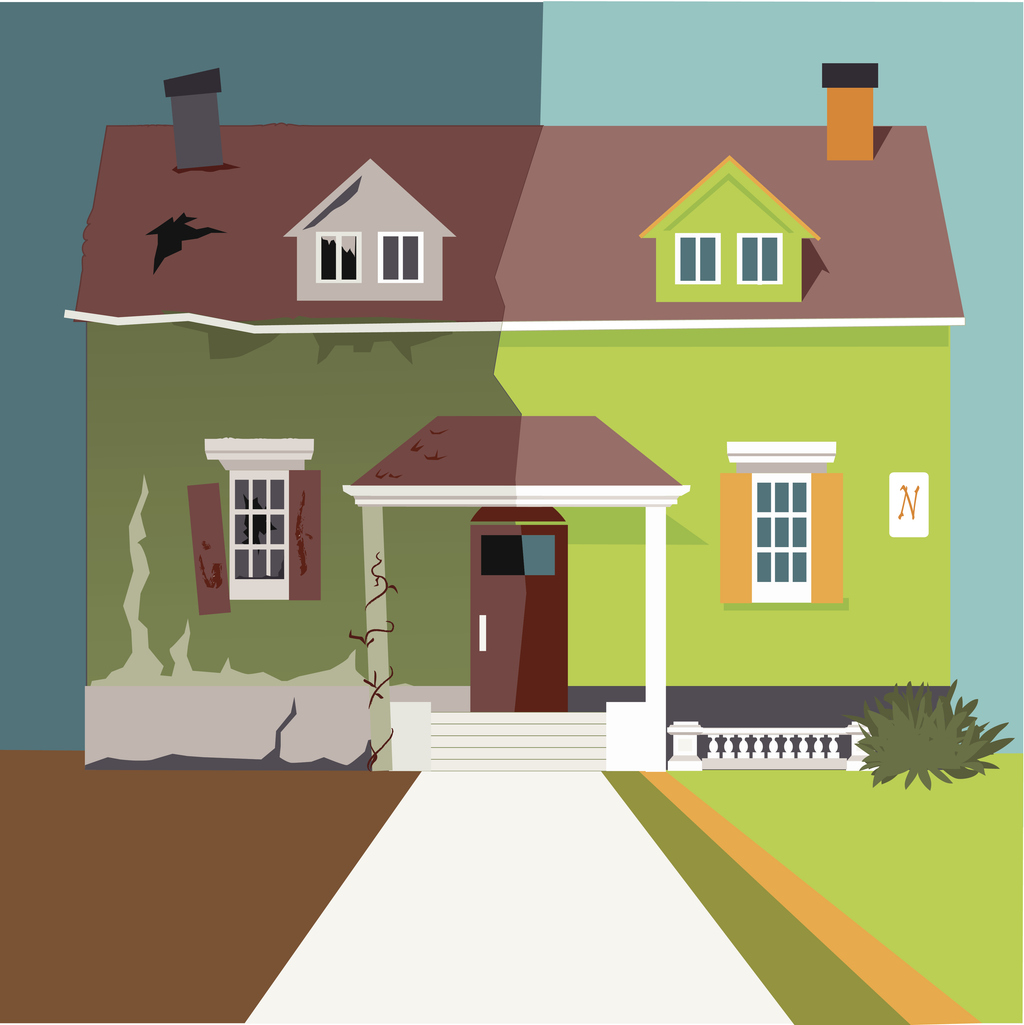Flipping a house is the practice of buying a property that needs improvements to be livable, making those improvements, and selling it for more than you invested. It is a complex, nuanced practice. There are concerns for budget, gentrification, and return on investment. Below you will learn when to flip a property you are interested in buying and reselling.
Flip a property when you have the funds to buy a fixer-upper and pay for all the necessary improvements, no matter how many there are and how expensive each is. Do not flip a property when you are not willing to spend the money on the most important (and most expensive) improvements, including electrical, plumbing, foundation, windows, and roofing. It is a bad practice to improve just the cosmetic issues of a house.
Flip a property when you don’t love the home for yourself and your family and think you can make it into someone else’s dream home. Not every home meets every family’s needs. Sometimes the backyard might be too small for a family with dogs. Other times there are not enough bedrooms for a new baby joining the family. When a house does not meet your family’s needs, make the improvements you can afford and sell it to a family who will make it their home.
Flip a property when it is located in an area that is collectively updating to be a structurally-safer, people-focused community. Flipping a property is a form of investing in a community. Choose a community that cares to support and provide housing for all budgets. Gentrification is a real concern when homes are flipped for higher prices than current residents can afford, and “Families that have lived in the same home for generations are suddenly unable to afford to live there and have to move.”1 You can be sure to not be a part of gentrification if the community as a whole is on the same page of making updates to provide safer housing from the older buildings. Regeneration and community renewal is not gentrification and involves revitalizing the structures in the community for the people of the community without pushing them out.
Flip a property when it is in the right community to safeguard your return on investment. A community that is revitalizing is a community that homebuyers have their eyes on, providing you with a surefire group of interested buyers. Similarly, if there is one stand alone property that needs improvements in a community that is already thriving, homebuyers will be motivated to buy your property once it has been improved to become a part of that community. When you do this, you’re helping to “turn around property values in areas where neglected or derelict homes are dragging down prices.”2
Flip a property when your real estate broker advises your decision. You can—and should—ask your real estate broker if they believe the property you are interested in is a good investment. When you work with FZAL properties to find your next investment property, Zainab will advise you on whether a specific property would make for a good opportunity for your return on investment if improvements are made before reselling.
If you are interested in buying an investment property to flip, discuss opportunities with an experienced real estate broker, Zainab of FZAL Properties, by calling (425) 465-7963.
Sources:


 Facebook
Facebook
 X
X
 Pinterest
Pinterest
 Copy Link
Copy Link
